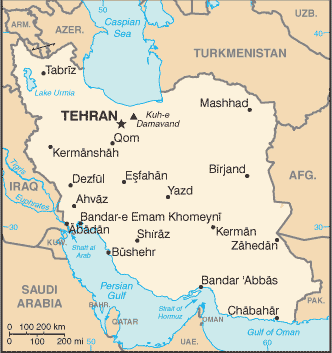Iran signaled on Monday it would consider halting its most highly enriched uranium while not abandoning its ability to make nuclear fuel, marking the first sign of compromise for the diplomatic negotiations set to begin this week.
 Iran’s nuclear chief, Fereidoun Abbasi, said that Tehran could stop enriching to 20 percent after they’ve stockpiled enough for use in a research reactor. “The job is being carried out based on need,” he said. “When the need is met, we will decrease production and it is even possible to completely reverse to only 3.5 percent.”
Iran’s nuclear chief, Fereidoun Abbasi, said that Tehran could stop enriching to 20 percent after they’ve stockpiled enough for use in a research reactor. “The job is being carried out based on need,” he said. “When the need is met, we will decrease production and it is even possible to completely reverse to only 3.5 percent.”
The U.S., on the other hand, has not proposed any such compromise in the lead up to the talks with Iran and the P5+1 set to take place in Turkey on Friday. Washington has demanded that Iran stop enriching uranium to 20 percent for medical research, as is their right under the Nuclear Non-Proliferation Treaty, and to close and dismantle the facility at Fordow, which is protected by reinforced concrete inside a mountain.
Demanding Fordow be dismantled is not only harmful to negotiations, it is totally unnecessary. Inspections can be regularly performed on Fordow (it has been inspected more than 10 times since October 2009) and in January Iran announced that Fordow “remains under the agency’s containment and surveillance.”
The demand to close Fordow indicates that Washington will allow an Iranian nuclear program only if they aren’t protected from U.S. or Israeli bombs.
If the Obama administration doesn’t compromise, the talks will inevitably fail and be used to legitimize a military strike on Iran for a nuclear weapons program it doesn’t have. The Obama administration’s efforts in recent months to prevent a preventive Israeli attack, along with its frequent announcements that Iran has no weapons program, are a hint that some compromise may be forthcoming.


